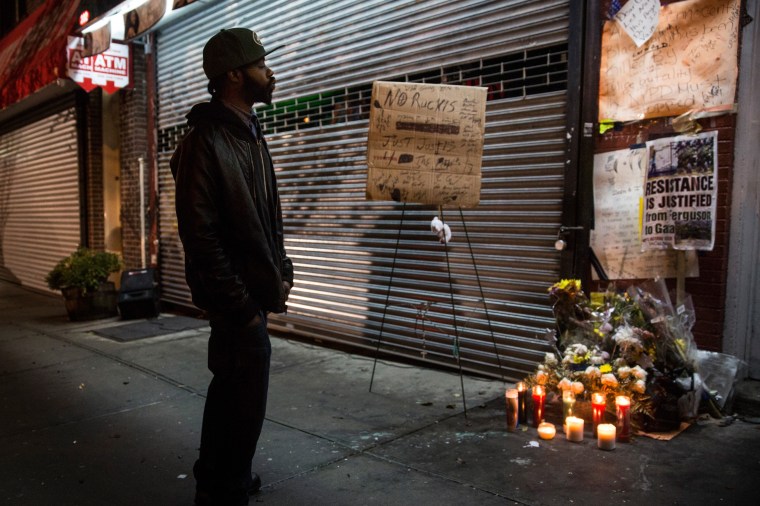"This all misses the point. What was Eric Garner doing? He was selling cigarettes, loose cigarettes. And the police in New York, because they're so eager for tax collection -- what is being done here with regard to taxes and the state's desire to collect them no matter what, how many cops were descended on that situation for cigarettes? [...] "You've got $13 a carton, $13 a pack in New York City, over $6 of that is taxes. And the authorities are telling the cops, 'You go out and you stop that,' because they're so intent on collecting tax revenue. I think the real outrage here is that an American died while the state is enforcing tax collection on cigarettes. This is just absurd. And it, you know, people talk about the left, they want a big state. They want a powerful state. Well, here it is. You've got to take all of it. If you want a powerful state, there's your police force acting on demands of the authorities to go out and make sure that every dime of tax is collected particularly from tobacco. Look how we stigmatize tobacco."
Right continues to blame cigarette taxes for Garner death
Some conservatives, unable to defend the outcome of the Eric Garner case, have looked for a way to exploit the story to advance a tangentially related cause.

Just one day after we learned that a New York grand jury would not indict the police officer responsible for Eric Garner's death, Sen. Rand Paul talked to msnbc's Chris Matthews about the developments. As far as the Kentucky Republican was concerned, Americans should "blame the politicians" who raised cigarette taxes.
Soon after, Jon Stewart, highlighting Paul's comments, replied, "What the f*** are you talking about?" It was a normal, human reaction to the senator's explanation, but apparently, the GOP lawmaker was talking about the increasingly common explanation on the right for Garner's killing. Here was Rush Limbaugh on Fox News' Sunday show yesterday:
As ridiculous as this may sound, it's not just Rand Paul and Limbaugh -- two Fox News hosts and a Washington Times columnist have made the exact same argument in recent days.
Apparently, for much of the right, the real problem here has nothing to do with race, law enforcement, and excessive force. It has everything to do with taxes.
They're wrong.
This really isn't complicated. As Danny Vinik explained last week, Eric Garner didn't die because of cigarette taxes. He died "because a cop put him in a chokehold, in violation of NYPD rules, and held his head against ground."
Aliyah Frumin also had a good piece on this: "Even if high taxes on cigarettes create a vibrant black market for cigarettes, critics say that has little to do with how police officers enforce those laws. Hiking taxes on cigarettes and banning the sale of loose cigarettes doesn't require cops to use lethal force against violators of the law."
By the reasoning adopted by Paul, Limbaugh, and their allies, if cigarette taxes were lower, there wouldn't be a black market, and Garner wouldn't have been selling loose cigarettes, and the police wouldn't have confronted him, and there wouldn't have been an altercation, and Garner wouldn't have been killed. The problem, in case this isn't obvious, is that this same argument could be applied to nearly any tax -- or any law, really -- that might lead to a potentially violent confrontation between a citizen and a police officer.
What seems to have happened here is that some on the right, unable to defend the outcome of the Garner case, have looked for a way to exploit the story to advance a tangentially related cause. And while that's shameful, it's also absurd -- we're not going to start cutting taxes and/or repealing laws to prevent police-related deaths.